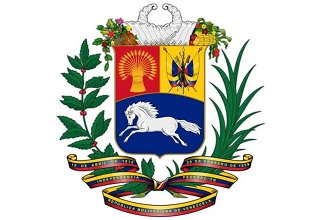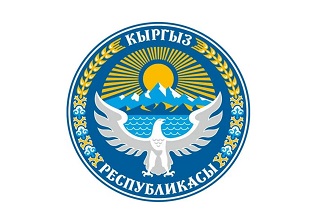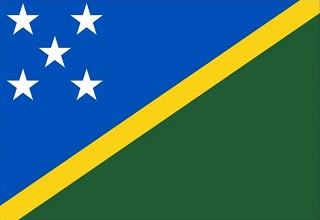Regarding the Inspection and Quarantine Requirements for the Jerusalem Artichoke from Russia to China
1. Inspection and quarantine basis
(1) Biosafety Law of the People's Republic of China;
(2) The Entry-Exit Animal and Plant Quarantine Law of the People's Republic of China and its implementing Regulations;
(3) The Food Safety Law of the People's Republic of China and its implementing regulations;
(4) Protocol between the General Administration of Customs of the People's Republic of China and the Bureau of Veterinary and Phytosanitary Supervision of the Russian Federation on Phytosanitary requirements for the importation of Russian Jerusalem artichoke into China.
2. Name of goods allowed to enter
The Jerusalem artichoke (Helianthus tuberosus) in this notice refers to fresh or dried Jerusalem artichoke tubers and their slices grown and processed on the territory of the Russian Federation and may not be used for cultivation purposes.
3. Enterprise registration
The registered production, processing and storage enterprises of ammoniae exported to China shall be recommended by the Veterinary and Phytosanitary Supervision Service of the Russian Federation to the General Administration of Customs of the People's Republic of China, and China will evaluate and examine the enterprises provided by Russia and register them. Enterprises without Chinese registration shall not export Jerusalem artichoke to China.
4. List of quarantine pests of concern to China
(1) Ditylenchus destructor
(2) Dickeya chrysanthemi
(3) Sclerotinia sclerotiorum
(4) Pustula tragopogonis
(5) Verticillium dahliae
5. Pre-export management
5.1 Production and processing requirements.
(1) Russia shall, in accordance with the requirements of the laws of the Russian Federation, adopt integrated management measures to prevent and limit the spread of quarantine pests in the production, processing and storage sites of Jerusalem artichoke.
(2) Russia shall ensure that the importation of Jerusalem tuberculus is free of contaminants such as quarantine pests, live insects, weed seeds, soil and plant residues of concern to China, and that the importation of Jerusalem tuberculus shall comply with the legal requirements of China.
5.2 Packaging Requirements.
(1) Imported Jerusalem artichoke should be packaged by the enterprise using new, non-toxic materials.
(2) The packaging should be marked in Chinese and English with the product name, Latin scientific name, weight, technical characteristics, batch number, product storage conditions, enterprise name, address and registration number, processing and packaging location, date (day/month/year) and other relevant information. Each package shall be marked with "The product is exported to the People's Republic of China."
5.3 Pre-export quarantine and certificate requirements.
(1) The Russian Federation shall carry out phytosanitary supervision for shipments to China, and after confirming compliance with the requirements of this announcement, the export to China shall be permitted.
(2) For goods that have passed quarantine inspection, the shipment of Heliomarum to China shall be accompanied by a phytosanitary certificate issued by Russia in accordance with international standards, and indicate the enterprise name, registration number, container or other means of transport number and other information in accordance with the samples approved by the International Plant Protection Convention. The additional declaration of the phytosanitary certificate shall be indicated by Russia: “The lot meets the requirements of the Protocol between the Federal Service for Veterinary and Phytosanitary Surveillance (Russian Federation) and the General Administration of Customs of the People's Republic of China on phytosanitary requirements for the Jerusalem artichoke, exported from the Russian Federation to the People's Republic of China and is free of any pests subject to quarantine for the People's Republic of China.”
6. Entry inspection and quarantine and unqualified treatment
When imported Jerusalem artichoke arrives at the entry port of China, the Chinese Customs shall conduct inspection and quarantine in accordance with the following requirements.
6.1 Verification of relevant certificates and identifiers.
(1) Check whether the phytosanitary certificate conforms to the provisions of Article 5 (3) of this announcement.
(2) Check whether the marks on the packaging comply with the provisions of Article 5 (2) of this announcement.
6.2 Entry inspection and quarantine.
According to the relevant laws, administrative regulations, rules and other provisions, combined with the relevant requirements of this announcement, the inspection and quarantine of imported Jerusalem artichoke shall be carried out, and those who pass the inspection and quarantine shall be allowed to enter the country.
6.3 Handling Unqualified Cases.
(1) If the goods do not meet the requirements of this announcement, the goods shall be disposed of, returned or destroyed. The goods that pass the treatment of disinfestation are allowed to enter the country.
(2) If the goods are found not to be accompanied by a valid phytosanitary certificate, they shall be returned or destroyed.
(3) If soil is found, the goods shall be returned or destroyed.
(4) In the event of any such nonconformity, China will immediately inform Russia of the violation and the measures taken. In case of repeated violations of the provisions of this announcement, China will suspend the import of Jerusalem artichoke from the relevant enterprises and immediately notify Russia.
GACC
May 22, 2024




